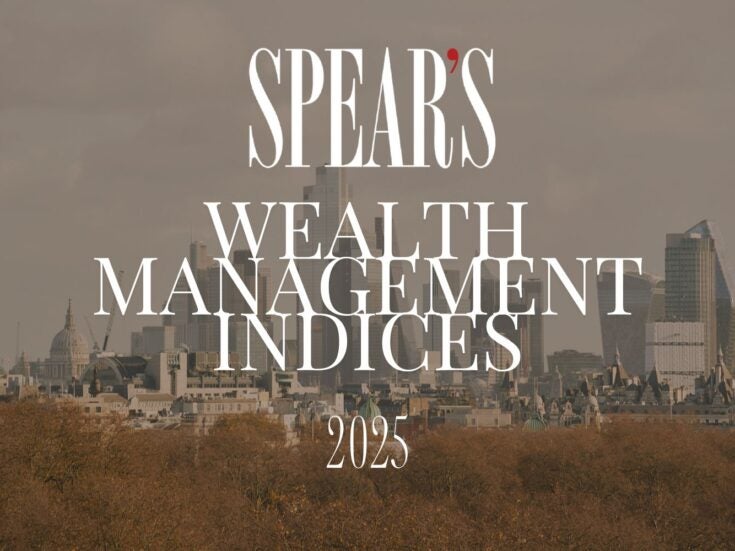
Andrew Thatcher says cash is the one to get right if wealth advisers want to keep their clients making gains.

Nearly every client a wealth manager has will have some exposure to cash in his or her portfolio. Whether used to provide flexibility, cover portfolio management fees, or simply as a means of taking a view on asset prices, cash has typically been a mainstay 5-10 per cent allocation, even in higher risk portfolios.
In a world of lower interest rates and reduced Financial Services Compensation Scheme limits, clients know they could be making a higher return on their cash deposits if their wealth managers had the time and resource to constantly be opening bank accounts, researching bank risk and moving their money around. However, this would be an incredibly inefficient and expensive use of their time which is partly why a large chunk of the approximately £1 trillion of cash in the UK belonging to the ‘household sector’ sits in the same banks for extended periods of time, earning a sub-optimal return.
With such a huge asset class and investors still yield-hungry, an effective cash management solution is perhaps a more important tool for wealth managers than ever before. Yet most wealth managers don’t have a comprehensive, user-friendly or cost efficient solution to take advantage of the opportunity, citing administrative complexity, low fees or a view that ‘all banks pay the same anyway’ as one of the many reasons they often tell clients searching for a solution to, ‘leave it with the bank’.
The reality however, is that at the current time, cash is an asset class that with the right solution, will allow you to make a larger percentage difference return for your client than in any other asset class. Full stop. Not only that, but a well thought out and efficiently executed cash management strategy can help an adviser to gather assets, justify investment management fees and provide a series of on-going opportunities for further investment business.
Consider the following situation: A client has £1m of invested assets with their adviser and pays the adviser 0.75 per cent per annum for their services. The same client has £500,000 in liquid cash sitting with their bank, either awaiting an investment opportunity or as a tactical allocation. At any one of the ‘high street’ banks, that cash is likely to be earning a low interest rate, let’s say 0.25 per cent or £1,250 per annum. You can boost the yield on that cash to between 1-2 per cent (or between £5,000-£10,000) per annum, net of fees, based on the client’s specific liquidity and risk parameters – just by having breadth of access to the market and the ability to deal at the click of a button. Even at the low end of that spectrum, that is an increase of £3,750 or 300 per cent on a gross basis.
There aren’t many other investments your client will consider that will boast that kind of percentage increase return over a 12-month period.
Furthermore, imagine what an opportunity it gives you to go out and uncover cash assets belonging to your clients that you never previously had a solution for, you can significantly grow your assets under management in a truly value added way.
Finally, the right solution can also give you a view of the client’s overall liquidity profile and a valuable window into upcoming deposit maturities they provide a natural reason for client contact and the consideration of other investment ideas.
Andrew Thatcher is Managing Partner of online cash management platform Flagstone Investment Management







